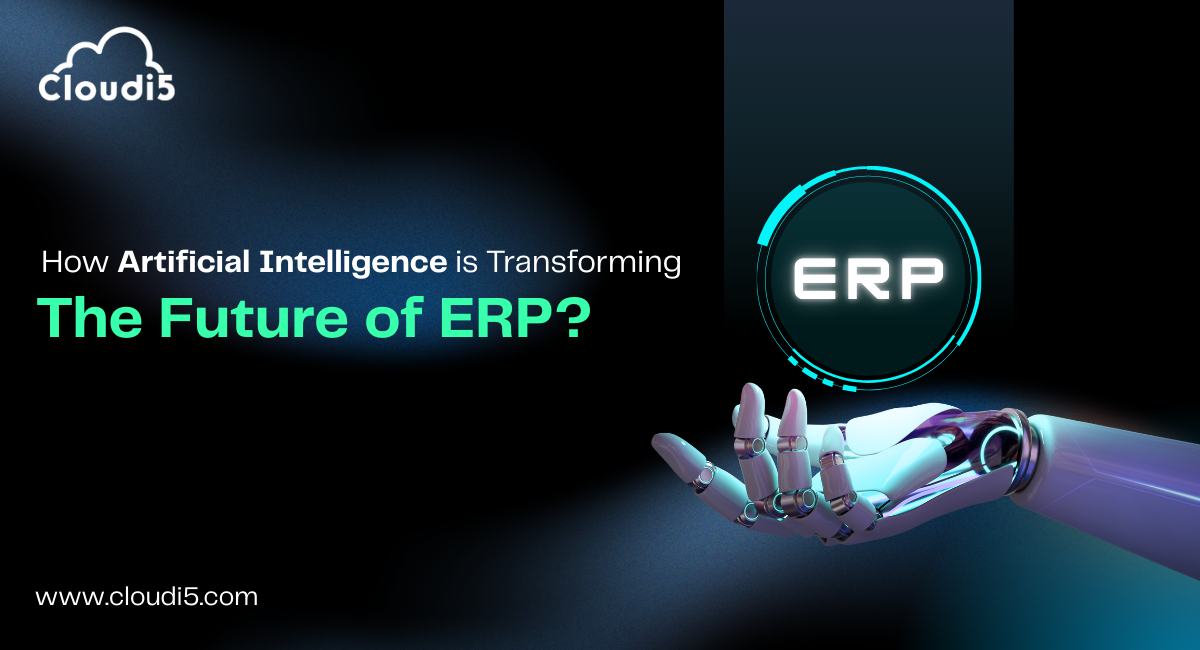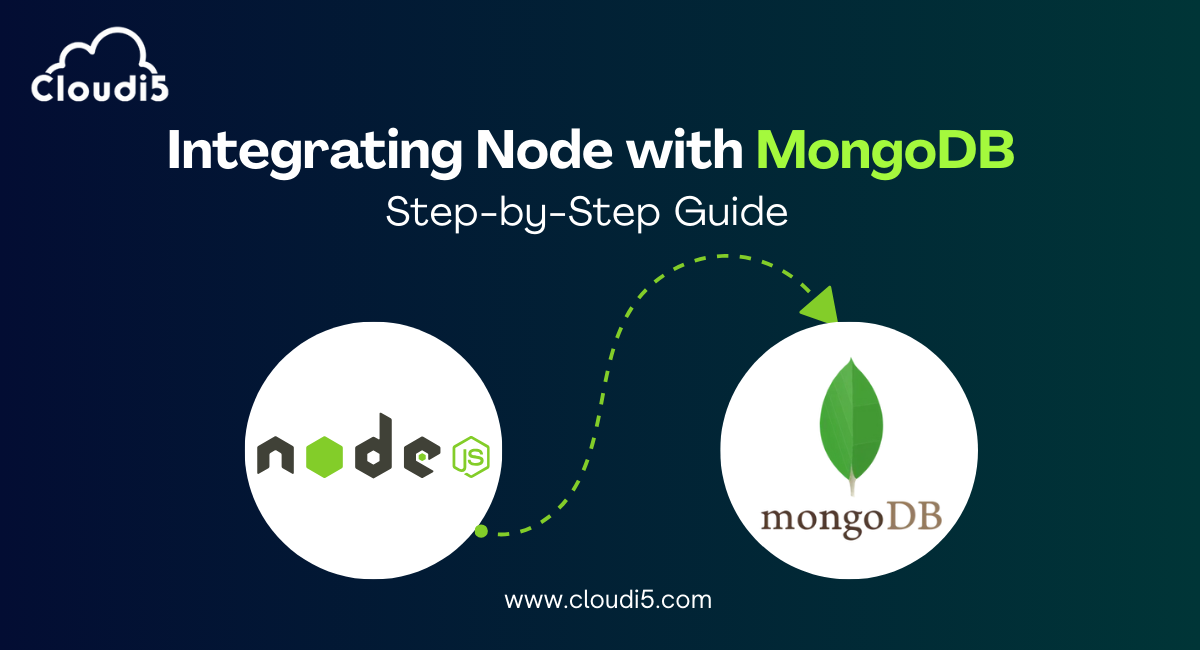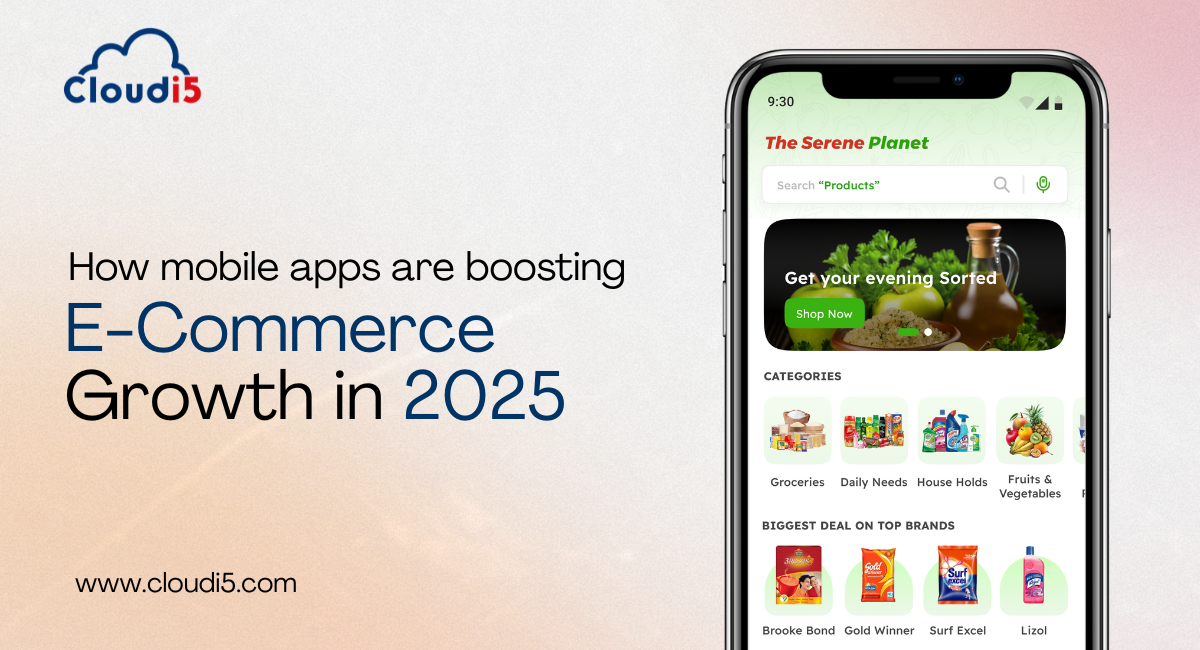
How Artificial Intelligence Is Transforming The Future Of ERP?
Introduction
Enterprise Resource Planning (ERP) systems are the backbone of many organizations, helping businesses manage and integrate their core operations like finance, supply chain, human resources, and customer relationships—all in one place. Traditionally, these systems were mainly focused on storing data and automating routine tasks.
What is ERP?
ERP stands for Enterprise Resource Planning. It's a type of software that connects different parts of a business into one unified system. Instead of having separate tools for accounting, sales, inventory, and HR, an ERP brings everything together, making it easier for teams to work efficiently and make better decisions.
Why AI Matters in ERP Today
As businesses grow and data becomes more complex, traditional ERP systems can struggle to keep up. That’s where Artificial Intelligence (AI) comes in. AI adds intelligence to ERP by helping systems learn from data, automate smart decisions, and even predict future trends.
How Artificial Intelligence is Transforming the ERP lies in its ability to go beyond basic automation. AI-powered ERP systems can now analyze huge amounts of data in real time, provide instant insights, and help businesses react faster to changes. Instead of just tracking what’s happening, AI-enabled ERPs can suggest what should happen next.
In short, AI is making ERP systems smarter, faster, and more adaptive—paving the way for a more intelligent future of business management.
The Evolution of ERP Systems
ERP systems have come a long way over the years. What started as basic software for managing business processes has now evolved into powerful platforms that support real-time decisions, flexible operations, and smart automation.
From On-Premise to Cloud-Based Solutions
In the past, ERP systems were installed on-premise, which meant companies had to set up servers and manage everything themselves. This was expensive, time-consuming, and hard to scale.
Today, many businesses have moved to cloud-based ERP solutions. These systems run on the internet, making them more affordable, easier to update, and accessible from anywhere. Cloud ERPs are also better suited for adding modern technologies like AI, making them more future-ready.
The Push for Real-Time Insights
Modern businesses need to move fast. Waiting hours or days for reports just doesn't work anymore. That’s why there’s a big push for real-time insights in ERP systems. Companies want instant access to their data so they can make quick and smart decisions.
This is exactly how Artificial Intelligence is transforming the ERP landscape—by helping systems process data in real time, spot patterns, and even predict what might happen next. Instead of just showing what happened, AI gives businesses the tools to plan ahead and stay competitive.
How AI is Reshaping ERP
Artificial Intelligence is adding a new layer of intelligence to ERP systems, making them more powerful and efficient than ever before. Let’s look at some of the key ways AI is changing the ERP game.
Smarter Automation of Business Processes
AI helps ERP systems go beyond simple automation by allowing them to learn and adapt over time.
- Automates repetitive tasks like invoice processing or data entry
- Reduces human error and speeds up workflows
- Frees up employees to focus on more strategic work
- Learns from user behavior to optimize tasks automatically
How Artificial Intelligence is Transforming the ERP here is by turning traditional systems into intelligent assistants that can work on their own, without needing constant human input.
Predictive Analytics and Forecasting
One of the most powerful benefits of AI in ERP is its ability to predict what’s coming next.
- Analyzes large amounts of historical data in seconds
- Forecasts sales, demand, inventory levels, and cash flow
- Helps businesses avoid risks and make proactive decisions
- Improves supply chain planning and demand forecasting
This is how Artificial Intelligence is transforming the ERP into a future-focused tool—giving companies a competitive edge by helping them plan with confidence.
AI-Powered Decision Making
AI makes it easier for business leaders to make smarter decisions based on real-time insights.
- Delivers instant, data-driven recommendations
- Highlights unusual patterns or problems early
- Supports better budgeting, hiring, and operational choices
- Integrates insights from across departments for a full-picture view
By supporting decision-making with real-time intelligence, Artificial Intelligence is transforming the ERP from a static tool into a dynamic decision-making partner.
Key AI Technologies Powering ERP Transformation
If you’re curious about how Artificial Intelligence is transforming the ERP, the answer lies in the smart technologies behind it. These tools make ERP systems faster, smarter, and more helpful than ever before.
Machine Learning (ML)
Machine Learning helps ERP systems learn from data and get better over time.
- Finds patterns and trends in business data
- Improves forecasting, planning, and decision-making
- Adapts and improves automatically with more use
Natural Language Processing (NLP)
NLP allows ERP systems to understand and respond to human language.
- Lets users type or speak simple questions
- Helps analyze emails, documents, and messages
- Makes ERP easier to use for everyone in the company
Robotic Process Automation (RPA)
RPA uses software bots to handle repetitive tasks.
- Automates things like invoicing, data entry, and approvals
- Reduces errors and saves time
- Boosts efficiency and speeds up workflows
Chatbots and Virtual Assistants
These are AI-powered tools that support users in real time.
- Answer questions instantly
- Help with daily tasks inside the ERP system
- Available 24/7 without human help
All of these technologies play a big role in how Artificial Intelligence is transforming the ERP, making it more intelligent, user-friendly, and efficient for modern businesses.
Real-World Use Cases of AI in ERP
AI is no longer just a futuristic idea—it’s already being used in real ERP systems across different industries. These practical examples show how AI is transforming the future of ERP by making everyday business tasks smarter and more efficient.
In finance and accounting, AI helps automate things like invoice processing, expense management, and fraud detection. It can quickly analyze financial data, find patterns, and support faster, more accurate decision-making.
In inventory and supply chain management, AI improves how businesses handle stock levels, deliveries, and supplier relationships. It can predict demand, reduce delays, and make the entire supply chain more efficient.
In human resource management, AI is helping with hiring, employee engagement, and performance tracking. It can sort through resumes, suggest the best candidates, and even predict employee turnover so HR teams can act early.
In customer relationship management, AI helps businesses understand and serve their customers better. It personalizes marketing, speeds up customer support, and suggests the next best action to keep customers happy.
These use cases clearly show how AI is transforming the future of ERP by turning traditional systems into intelligent tools that support smarter, faster business decisions.
Benefits of Integrating AI with ERP Systems
Integrating AI with ERP brings major advantages that are changing how businesses operate. One of the biggest benefits is enhanced productivity. AI takes over repetitive tasks, like data entry and report generation, so employees can focus on more important work. This saves time and helps teams get more done with less effort.
Another key benefit is reduced operational costs. With AI automating manual processes and improving efficiency, businesses can save money on labor, avoid costly mistakes, and streamline their operations. It’s a smarter way to manage resources and cut unnecessary expenses.
There’s also a big improvement in accuracy and speed. AI can process large amounts of data quickly and with fewer errors than humans. This means faster decision-making, more reliable reports, and better outcomes across the board.
Overall, these benefits highlight how AI is transforming the future of ERP, making systems not only faster and smarter but also more valuable to the businesses that use them every day.
Challenges and Considerations
While AI transforming the future of ERP brings many benefits, there are also some challenges businesses need to think about.
One major concern is data privacy and security. As AI systems handle more sensitive business data, companies need to ensure that this information is protected from cyber threats. It’s important to use strong security measures to keep customer and company data safe.
Another challenge is implementation complexity. Integrating AI into existing ERP systems can be difficult. It requires the right tools, resources, and sometimes even a change in how businesses operate. The process can take time and effort, especially for companies with older systems.
Finally, change management and user adoption can be tricky. Employees may be hesitant to adopt AI-powered ERP systems, especially if they’re used to traditional ways of working. It’s important to train staff and help them see the value of AI in improving their workflows.
These challenges show that while AI transforming the future of ERP has huge potential, businesses need to approach the integration carefully to ensure success.
Conclusion
In conclusion, AI transforming the future of ERP is revolutionizing how businesses operate. By automating tasks, enhancing decision-making, and improving productivity, AI is making ERP systems smarter and more efficient. As companies look to stay ahead in a competitive landscape, AI-powered ERP solutions are becoming essential tools for growth and success.
With the support of companies like Cloudi5 Technologies, businesses can successfully integrate AI into their ERP systems. Cloudi5 offers cutting-edge solutions that help organizations leverage AI’s full potential while ensuring ease of use, security, and scalability. As AI continues to evolve, the future of ERP looks brighter than ever, offering businesses more opportunities to thrive in the digital era.
Trusted By












Leave Comments